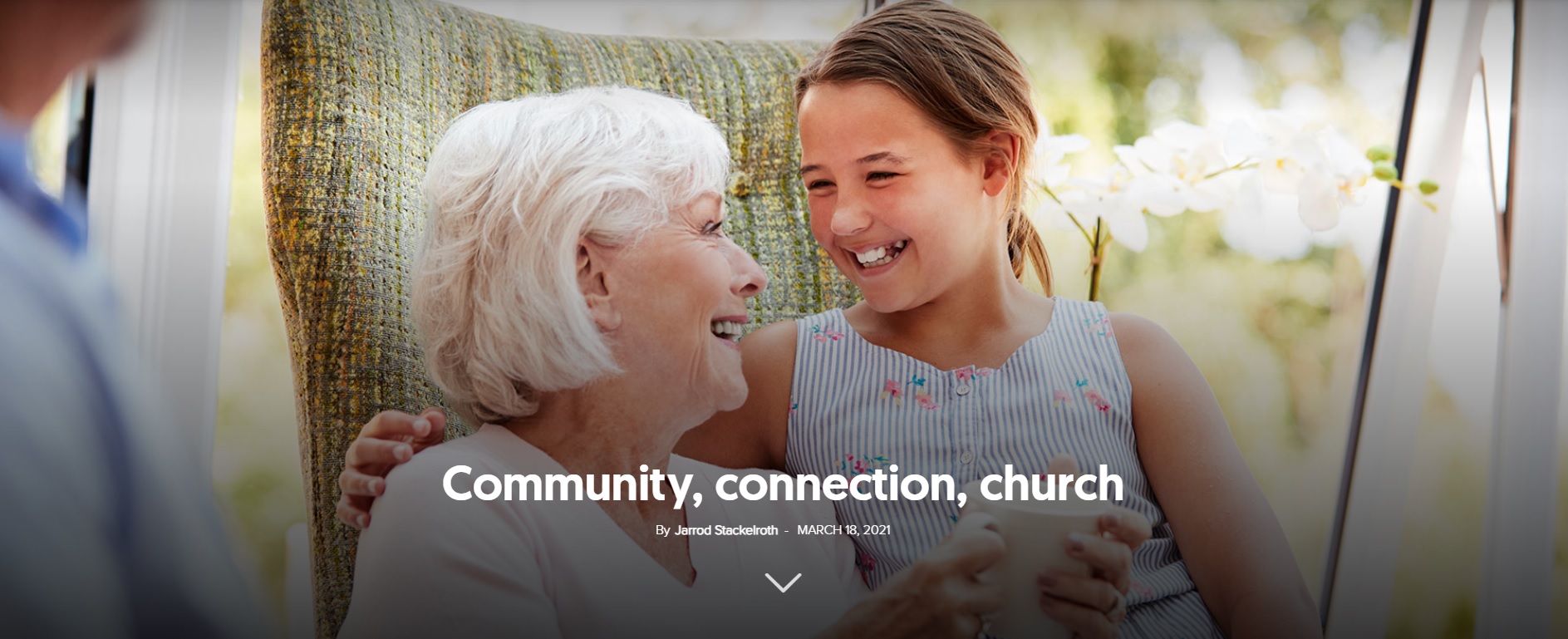Have you ever travelled with someone you thought you really liked, only to see a different side of them as the trip progressed? People say travelling is a good way to determine whether someone is “the one” or not. How do they respond when things don’t go according to plan? In their sleep deprivation, will they become aggressive toward the flight attendants? How will they behave if the whole trip is ruined?
Travelling can reveal a lot about us and give us an opportunity to see where we need to grow. Maybe we need more patience, openness, humility or tolerance. Maybe we need to have more fun. Whatever the case, we can look at our journey with God in a similar way.
When we travel through life with God, He will gently show us where we need to grow and empower us to become the best versions of ourselves. He never turns away or abandons our fledgling efforts to follow Him. He sticks with us even though we aren’t perfect. As a result, our intentions, desires, values and actions gradually shift.
The Johari Window
Researchers have developed a self-reflection tool called the Johari Window. It identifies four ways that we can think about ourselves:
- The open area: the parts of yourself that you and others know.
- The blind area, or the “I don’t know, but you do” area: things not known by yourself but known to others.
- The hidden area (the opposite of the blind area): things you know about yourself but others don’t know.
- The unknown area: things known neither by yourself nor others, are yet to be revealed, or are known only by God.
What the Johari Window tells us is that growth doesn’t happen in isolation. We need people who can gracefully point out our blind spots. The larger our open area is, the more we will know about ourselves, and the better our relationships will be. The blind and hidden areas are the ones we want to reduce. For that to happen, we must be willing to be approachable and vulnerable with others. That can be scary for many of us. But as author and preacher Timothy Keller says, “To be loved but not known is comforting but superficial. To be known and not loved is our greatest fear. But to be fully known and truly loved is, well, a lot like being loved by God. It is what we need more than anything.”
A trip to India
Some time ago, on a trip to India, my friends and I had the opportunity to learn more about each other. We endured uncomfortable train rides that went 12 hours longer than expected, got sick from side-street samosas, yelled and sulked over silly things, and spent nights on the streets because of poorly communicated arrangements. On our last night together, we walked through Delhi and shared what we had learned about each other—the good and the not-so-good. As we talked, my friends gracefully showed me where I needed to grow (and I’m glad to say that we’re still friends to this day).
Healthy relationships characterised by trust, vulnerability and growth are one of God’s greatest gifts to us. They can be a place of healing and transformation on our journeys. If we want to grow, we need to be open to listening to those who love God and who want the best for us. As Ephesians 4:15 says, “Speaking the truth in love, we will grow to become in every respect the mature body of him who is the head, that is, Christ.”
God designed us to be individuals, yet His plan is that we function in a relationship with Him and with others. The degree to which we ignore the parts of ourselves that need to grow and mature is the degree to which our loving service to others is limited. They are the parts that are usually fearful, protective, defensive, manipulative and self-promoting. If we struggle to see areas we need to grow, we can ask God to bring these things to light. He has our best interest at heart, and His greatest desire is to help us confront the barriers that keep us from experiencing His love and goodness. The journey of growing in Him might be hard at times, but the psalmist reminds us, “Even though I walk through the valley of the shadow of death, I will fear no evil, for you are with me; your rod and your staff, they comfort me” (Psalm 23:4).
You might also be interested in reading: Community, connection, church
Rest in Jesus
In Matthew 11:28,29, Jesus invites us to come to Him, and He will give us rest. This rest is an invitation for us to partner with Him. “Take my yoke upon you . . . and you will find rest,” He says.
Just like plants need water, sunlight and healthy soil to grow, we also need certain things to flourish. Prayer, Bible reading, community, worship, serving others and spending time in nature will benefit our characters and our relationship with God. As with any relationship, however, we must spend time with the person if we want to learn about them and strengthen our friendship with them.
If you’ve ever travelled with someone, you might have noticed that your behaviours begin to rub off on each other after a while. In the same way, we grow more like Christ by paying attention to our motives, choices and behaviours. Author and Bible commentator, Ellen White, said, “It is by loving Him, copying Him, depending wholly upon Him, that you are to be transformed into His likeness.”
When we anchor ourselves in God’s love, we can focus on partnering with Him to live out His plans for us. We can use our gifts and talents to their full potential, we can grow in love and compassion, and our weaknesses can become strengths to help others. We can know we are growing in Christ as we will be filled with the fruit of His Spirit: “…love,
joy, peace, forbearance, kindness, goodness, faithfulness, gentleness and self-control” (Galatians 5:22,23).
Do you want to grow in Christ? Seek Him with your plans. Spend time with Him. Ask Him what He is trying to do in you. He is always there, listening, guiding and loving. Let Him join your journey. You won’t be disappointed.
Zanita Fletcher is a life coach, writer, and an assistant editor for Signs of the Times Australia/New Zealand. She writes from the Gold Coast, Queensland. A version of this article first appeared on the Signs of the Times Australia/New Zealand website and is republished with permission.




















